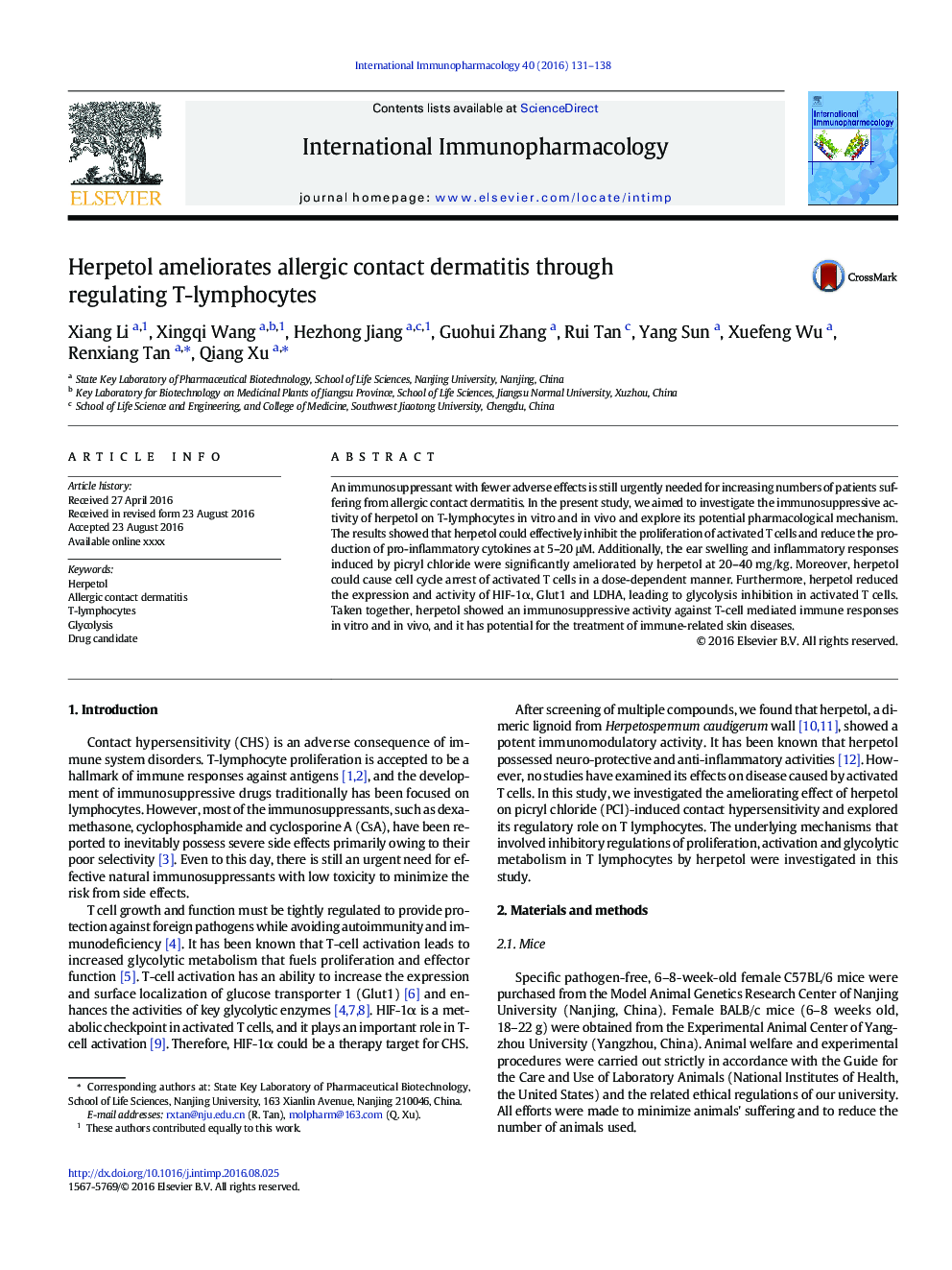| Article ID | Journal | Published Year | Pages | File Type |
|---|---|---|---|---|
| 2540165 | International Immunopharmacology | 2016 | 8 Pages |
•Herpetol inhibits T-cell proliferation in vitro and in vivo.•Herpetol causes cell cycle arrest and inhibits glycolysis in activated T cells.•Herpetol could be a potential candidate for T-cell-mediated skin diseases.
An immunosuppressant with fewer adverse effects is still urgently needed for increasing numbers of patients suffering from allergic contact dermatitis. In the present study, we aimed to investigate the immunosuppressive activity of herpetol on T-lymphocytes in vitro and in vivo and explore its potential pharmacological mechanism. The results showed that herpetol could effectively inhibit the proliferation of activated T cells and reduce the production of pro-inflammatory cytokines at 5–20 μM. Additionally, the ear swelling and inflammatory responses induced by picryl chloride were significantly ameliorated by herpetol at 20–40 mg/kg. Moreover, herpetol could cause cell cycle arrest of activated T cells in a dose-dependent manner. Furthermore, herpetol reduced the expression and activity of HIF-1α, Glut1 and LDHA, leading to glycolysis inhibition in activated T cells. Taken together, herpetol showed an immunosuppressive activity against T-cell mediated immune responses in vitro and in vivo, and it has potential for the treatment of immune-related skin diseases.
